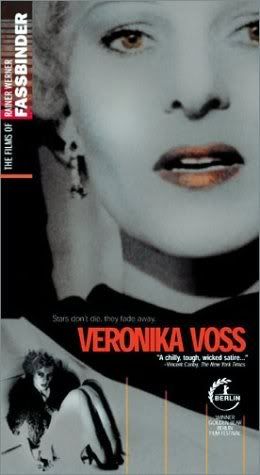Three short ones
In lieu of three posts, here's a conglomeration of what I've watched lately. The Ten (David Wain, 2007) I am the queen of hyperbole; for instance, how many times can I say that a movie was one of my most anticipated of the year? Add another one to the total. The Ten is the comedy of the year, from David Wain (The State< Stella, Wet Hot American Summer, all of which I am a fanatic for) and Ken Marino. Here's a comedy that's foul, juvenile, and sacreligious, all without being too stupid. Everyone and their mom is in this movie, from Jessica Alba (cute and surprisingly funny) to Winona Ryder to Justin Theroux as Jesus. Ten vignettes, each interpreting a commandment. Wain said he wanted to make a funny version of The Decalogue, and he most definitely succeeded. Hilarity on the level of Wain's other projects abounds. 9/10  Tenebre (Dario Argento, 1982) If you ever visit the actual site, you'll probably notice the new header, a beautiful brunette sitting at a table, holding a gun with an almost indescribable expression: part fear, part laughter, part sadness. This is my favorite moment from Tenebre, Argento's incredibly beautiful giallo masterpiece. It's suspenseful (I didn't see the end coming, for sure), but more than that, it shows the beauty that is possible in horror movies. When one character falls through a mirror with her throat slit, right into the camera, it's more stunning than anything else. Not to sound like a serial killer or anything. Argento topped himself here, horror with a surprise ending that satisfies the gore enthusiast as well as the cineaste. 9/10  Martin (George A Romero, 1977) Finally, George A Romero's problematic, but rewarding, Martin, about a young man who thinks he's a vampire. Is he, or is he just insane? Well, he gets the blood from his victims with the use of a razorblade with fangs, only one of the clever details in the film. But while the details are solid, the movie as a whole is less so. Martin changes mid-film, from a scared/scary young man who never speaks more than three words at a time to a man who enters a relationship with a married woman without wanting to kill her. How? Why? Martin's character is unfufilled; I wanted to know something about his past, how he came to believe he is (or be) this creature. But the very last scene is one of the best examples of dramatic irony I've ever seen, so I recommend seeing it if only for that. 7/10 Labels: 1977, 1982, 2007, dario argento, david wain, george a romero |




